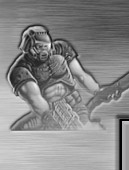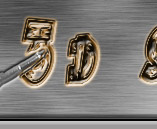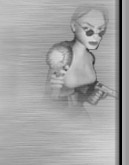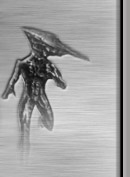| Ultima Underworld: The Stygian Abyss | Blue Sky Productions / ORIGIN Systems | 1992 | |
|---|---|---|---|
 |
You are the Avatar. Once again you return to Britannia. Upon your arrival, you witness the kidnapping of Baron Almric's daughter. Found guilty of the crime, you are thrown into the Great Stygian Abyss with the choice of either finding the girl or rotting in the dungeon. On your journey you have to get along with the many inhabitants of the dungeon, who are survivors of a failed colony, and eventually find out that there's much more to this kidnapping than meets the eye. This was the first RPG that had fluid first-person movement in a 3D environment, revolutionizing the genre. Unlike earlier first-person RPGs like Dungeon Master and Eye of the Beholder, the player can move in every direction and the graphics are updated continually. The dungeon also is not made entirely of corridors and rooms arranged in a rectangular fashion but has a lot of variety: slopes, stairs, bridges and more. The combat system is action-oriented. The player has to draw his weapon and aim at his opponent in real time. The magic system is based on runes that can be found in the Abyss. If combined in the right order, they produce a magical effect. As the Abyss is populated by more than just monsters, there are also various dialogue sequences with NPCs, who one can also barter with. It's an "unsung hero" of the FPS genre, probably because it was also a RPG, and perhaps the first game to belong to it properly. The player character could defeat enemies with projectile weapons (bows, crossbows) or with melee weapons (swords, cudgels, etc.). Technologies such as walls of varying heights, non-perpendicular walls, inclined surfaces, and swimming were ahead of their time. This superior engine was later used for System Shock. A moderate commercial success, it was soon overshadowed by subsequent titles that nonetheless used inferior technology. |
||
|
|
|
||
|
|
|
||
|
|
|
||
|
1 2 |
|
||
|
|
|
||
|
|
|
||
|
|
|
||
|
|
|
||
|
|
|
||
|
|
|
||
|
|
|
||








